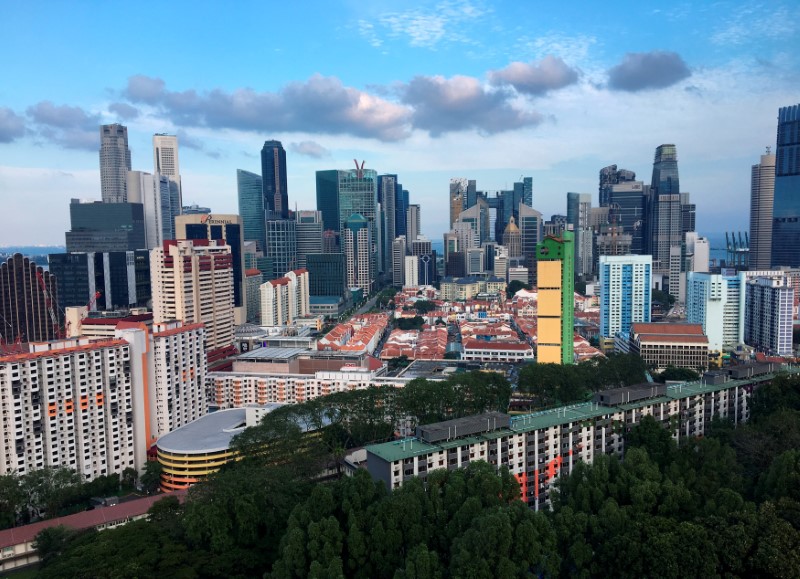By Fathin Ungku and Aradhana Aravindan
SINGAPORE (Reuters) - Singapore's anti-corruption watchdog said it is reviewing the country's primary anti-graft law amid mounting pressure on the government to toughen the rules in the wake of revelations of criminal wrongdoing at companies in the city-state.
Keppel Corp, which counts state investor Temasek Holdings (TEM.UL) as its largest shareholder, has agreed to pay more than $422 million to resolve probes by U.S., Brazilian and Singapore authorities on charges it bribed Brazilian officials.
The disclosure has dented Singapore's squeaky-clean image. It is ranked seventh-least corrupt nation in the world according to Transparency International, the global anti-corruption coalition based in Berlin.
Legal experts say that Singapore's Prevention of Corruption Act (PCA), the primary anti-graft law enacted in 1960, is outdated and inadequate in punishing and deterring wrongdoing in the corporate sector and needs to be bolstered.
"The Singapore government regularly reviews the provisions in the PCA with a view toward improving the anti-corruption regime in Singapore," the Corrupt Practices Investigation Bureau (CPIB) said in a statement to Reuters late on Monday.
"The PCA is currently going through a review," it said.
The bureau, which is Singapore's anti-graft agency that investigates corruption in the public and private sectors, added it would be "premature to comment on the specific details at this point of time."
The ongoing review was "not connected to the Keppel case," a CPIB spokeswoman later said.
CPIB and the country's Attorney General's office said in late December they were investigating individuals related to Keppel's Brazil bribery case.
Keppel's case was followed by revelation of extensive oil theft at Shell's biggest refinery, leading to charges against employees of the Singaporean subsidiary of the oil giant and people who worked for one of Singapore's biggest marine fuel suppliers.
For the PCA to be updated, experts on the country's fight against corruption suggest raising the law's financial penalty, currently a maximum of S$100,000 ($75,800) per offense.
"In today's context, a penalty of $100K per charge is on the low side. It may not have been so in 1989 when the penalty was set," said Eugene Tan, an associate professor of law at the Singapore Management University (SMU).
OBSOLETE AND NOT ENOUGH DETERRENCE
This month, Indranee Rajah, Senior Minister of State for Law and Finance, said in parliament any penalty for Keppel under Singapore law would have been far less than what it was now liable for under the global resolution. The company was fined nearly eight times the value of the alleged bribes of $55 million.
Under the U.S. Foreign Corrupt Practices Act, companies can be fined up to $2 million per violation.
Pritam Singh of the Workers' Party, Singapore's only opposition party in parliament, told Reuters: "Tougher penalties will have a deterrent effect."
Singapore's PCA helped fight corruption rampant during its early years and is seen to have been particularly effective in stamping out public sector corruption.
The major global financial hub and wealth management center has also been successful on cracking down on white-collar financial crime.
In 2016, its central bank shut down two Swiss banks in its biggest crackdown on alleged money-laundering activities connected with Malaysia's scandal-tainted 1MDB fund.
Authorities have frozen millions of dollars in bank accounts, fined banks and charged several private bankers in connection to the probe.
PROTECTION FOR WHISTLE-BLOWERS
Legal experts also say a mark of commitment to fight corporate corruption will be to enact an overarching legislation to protect whistleblowers, who are afforded anonymity under the PCA but which can be revoked if the courts believe justice cannot be served without revealing the identity of the informer.
"It depends on the companies to have in place company-specific whistle-blower policies," Nizam Ismail, a partner at RHTLaw Taylor Wessing said.
"When it is only an internal policy, it is not as robust as legislation where the protection is very strong. If you have a whistle-blowing framework, then the message is very clear -- companies must be put on guard or else they will be whistle-blown," he added.
SMU's Tan said Singapore's anti-corruption laws should provide for criminal liability of executives and the board of a company that engages in corruption, if it can be shown that they could have done more to prevent the corrupt practices.
